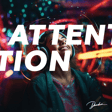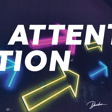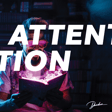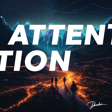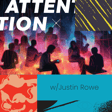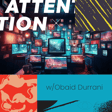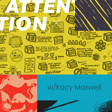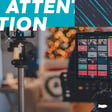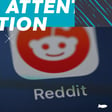Become a Creator today!Start creating today - Share your story with the world!
Start for free
00:00:00
00:00:01

How B2B Marketers Should Define a Company's "Audience" w/Jason Widup
In this episode, Dan Sanchez talks to Jason Widup who is the VP of Marketing at Metadata.io.
We cover:
- How others define audience
- Jason's definition of audience and community
- The future of audience growth and community building in B2B marketing
Thank You For Listening to the Attention Podcast! Don’t forget to hit Subscribe or Follow us on your favorite podcast player so that you never miss an episode! If you want this podcast delivered to you via email, you can subscribe here: https://www.theirattention.com/p/subscribe/
The Attention Podcast is brought to you by Sweet Fish, the podcast agency for B2B brands.
We cover:
- How others define audience
- Jason's definition of audience and community
- The future of audience growth and community building in B2B marketing
Thank You For Listening to the Attention Podcast! Don’t forget to hit Subscribe or Follow us on your favorite podcast player so that you never miss an episode! If you want this podcast delivered to you via email, you can subscribe here: https://www.theirattention.com/p/subscribe/
The Attention Podcast is brought to you by Sweet Fish, the podcast agency for B2B brands.
Transcript
Introduction to the Attention Podcast
00:00:03
Speaker
Welcome back to the Attention Podcast, where you learn how to gain and retain the attention of your buyers to grow an audience.
Defining B2B Audience with Jason Whittup
00:00:10
Speaker
I'm Dan Sanchez with Sweetfish, and today I talk to Jason Whittup, who is the VP of Marketing at Metadata, about how B2B marketers should define a company's, quote unquote, audience.
LinkedIn Poll Insights on Audience Definitions
00:00:21
Speaker
In the interview, we talk about how other marketers are currently defining it based on a LinkedIn poll I posted recently. We talk about Jason's definition of audience and community, and then we discuss the future of audience growth and community building in B2B marketing in general. All right, let's get into it.
00:00:42
Speaker
Welcome to the show. Thanks Dan, thanks for having me. Glad to be here. So this is one of those episodes that I wish I would have done at the beginning of the show because eventually you launch a podcast on a topic and you think when you speak about the topic that everybody's thinking about the same thing. And after interviewing guests, after guests, I started finding out that I define audience.
00:01:03
Speaker
differently than everybody else. So naturally I put out a poll on LinkedIn with probably four different definitions of an audience and even in the text I put even more to kind of show like a full range from all the way. And this is the poll, these are the poll answers. I asked, how do you define a company's quote unquote audience? It's those who, and my answers were, are aware of you, prefer you, engage with you regularly, or officially opt into your content.
Debate on Audience Definitions
00:01:32
Speaker
Those are the four options and the results are 30% and I'm kind of rounding a little bit, but 30% said aware of you. I was shocked because I'm on the other end. Yeah.
00:01:44
Speaker
About 8% said prefer you, so smaller there. 42% said engage with you regularly. And that's kind of where I'm at. That's the camp of what I voted for. And about 21% said opted into your content, which I can see the case for that too. I thought the poll results were interesting as it showed that across at least my audience, my small B2B marketing heavy on the SaaS side audience,
00:02:07
Speaker
they were very different opinions and the comments went long as far as why they justified their opinion. So it wasn't like a loose opinion, like people were pretty strong on it. And of course, a number of people made the claim that's like, well, audience is such a loose term. It's like love, you know, there's brotherly love and there's affectionate love. There's many different kinds of love. I love my big Macolas, but not in the same way I love my wife, you know?
00:02:32
Speaker
Are you sure? Audience is too broad and it needs another adjective in order to dive it down. Those were some of the things that I've been exploring. Jason, I'm so excited to actually have this conversation with you because I know this is something that you guys have thought about over at Metadata.
Jason's Audience Definition Approach
00:02:48
Speaker
Trying to throw it over to you, how have you defined audience and what do you think about where the definitions are at as far as what people think about it?
00:02:56
Speaker
Yeah, I love this because I like to get into the words, right? I like to get into like the words and what they mean. And kind of did the same thing with demand generation, you know, a while ago. But really with this one, the way I think about it is, and I'll talk about why I think some of the poll results are the way they are.
00:03:13
Speaker
If you think of audience, the word audience is something that we actually haven't really been using as B2B marketers until recently. I don't know if it's five years ago. We usually say, when we're usually talking about what this audience is, it's usually our database. That's how you hear it. It's like, oh, it's my database. Or you hear, it's my followers. You get these countable older school definition that is very attributable.
00:03:43
Speaker
But if we really think about the word audience, when do you use the word audience? You use it when you're talking about a show, right? You're using it when you're talking about an audience that wants to see your stuff. And I think that's where we sometimes get muddied, is think of it from a show's perspective. If I'm an audience for, well, I'll just give you a nerdy one, Big Bang Theory on TV,
00:04:10
Speaker
I want that content, right? It's not like I'm sitting in front of my computer screen and I'm browsing a website and they're forcing that show on me to watch it, right? I'm seeking it out. And so we base our audience definition more on that than the traditional, like, my database or my followers. And so for us, what it means is several things. We've got several audiences.
00:04:37
Speaker
We have our traditional followers on or connections on LinkedIn. And at metadata, we look at that from the company page and then there's several of us that are very prominent on LinkedIn and we basically add those up. I'll get into more about how we measure it kind of more in a second. But speaking to these polls, I think that's why we see the are aware. And I think that's more of the older school definition of like, oh yeah, they've seen some of my stuff or they're in my database or they're following me.
00:05:06
Speaker
doesn't necessarily mean that they're trying to draw themselves into your content. Then on the back end of that, the opt-in too at 21 percent. So a full half of the people are I think in this older school like awareness and opt-in. The opt-in is again, my database.
00:05:21
Speaker
So that's audience. So then what do we call these other people, right? That we're targeting. That's different to me. I'm targeting prospects. I don't consider that an odd, I mean, this is where the terms get muddied, right? Because like all the tools are good audience. Exactly. The tools that maybe even mine, like probably my own metadata is like,
00:05:41
Speaker
you build an audience, you know what I mean? So you started calling it an audience. But what that really is, it's a target list of prospects based on your best ICP or retarget, you know, whatever, however you're defining that. And so creating that separation, I think is really important because it's like pull versus push. You know, my true audience are the people that want my stuff, want to hear from me, are seeking it out.
00:06:05
Speaker
And then the push one is the people that I'm targeting for my platform because I think there's a reason that they should buy us. So that's how we think about it. Generally, when I think of the audience and the one I came in with my mind even starting the
Dan's Perspective: Audience vs. Community
00:06:17
Speaker
show was kind of like public speaking, right? You have a crowd that's listening to what you have to say. Some engage, some don't, but they're generally listening and taking notes and actively consuming the content. They've chosen to be there. Exactly.
00:06:30
Speaker
And even better is if there are an audience of like raving fans, right? And then you think of a concert where they're all like rushing the stage and the hands are up. Yeah, yeah. You know, like hopefully you can turn them from just sitting there passively engaging to raving fans and they can't, they're like reaching out just so they can touch your fingers maybe, you know?
00:06:46
Speaker
That's like the dream of having a small crowd of those guys, right? At least that's what I had in my head. So it's kind of interesting to hear your perspective on as people that are actively going after your content, actively looking for it. Like I get encouraged when someone's like, the only reason why I log into LinkedIn most of the time is just to see your post, right?
00:07:08
Speaker
That's the kind of fans and audience that you want. They're looking for you. And if they don't see you in a while, they'll go search for you and make sure they're seeing your content and go like some posts. That's an audience in my mind. So it sounds like you guys are similar.
00:07:21
Speaker
Yeah, and this actually extends into community too, right? So like a lot of us are also building a community. And so now we have to define, well, what's the difference between your audience and your community? I don't know yet, honestly. So I don't know if we have, right now we don't have a different definition for these two. So for us, it's kind of the same thing. I think we call it more our community because we are trying to build a community of demand gen professionals. And so, but here's the way we look at it, at metadata.
00:07:47
Speaker
The first one is the traditional, like I mentioned. We've got followers on LinkedIn channels. We grew our company page, and then myself, Mark Huber, Gil, our CEO, and our president really, Olivier. We're all on social quite a bit, and we are continually using it to build our company audience as well. We look at those, we add those up. There's duplication, of course, a lot in there. We add those up though, that's one part of it.
00:08:13
Speaker
The next part are people who have specifically requested to hear from us. So this is more that opt-in one, where they've been on our website, they've engaged with content, and then there's specific signups that say, please tell me when new content comes out. And so if they register for that, then we consider, okay, they're in our community now. And then they get weekly emails about new stuff we're putting out.
00:08:37
Speaker
And really it's those things, you know what I mean? It's really those two things that we kind of add up and we consider those our community. And where do these other, so along with the opt-ins, we also have like our event, our big demand event that we did last October. People that registered for that, they automatically enter into that community kind of list or group that we have.
00:09:00
Speaker
Our plan ultimately is we want to give our community members a way to engage and network and share and engage with our content more in our events. We're just not sure how to do that yet. We're thinking of technology as a later stage thing for us to get into around community and audience. But first, let's just see, do we have one? Do we have a community who wants to engage? That's how we're taking audience and community as well.
00:09:27
Speaker
So the way you're measuring it is kind of adding up your aggregate followers across all your LinkedIn profiles of people who are doing that actively for the company. Email opt-ins and event attendees. Is that kind of like the three
Understanding Audience and Community Distinction
00:09:39
Speaker
main prongs? Yep, yep. Cool. It's funny, I actually define community is different than audience. When I go back to Seth Godin's book, Tribes, you know, a golden oldie, right? As far as a marketing book is like one of my first big books I read as a marketer.
00:09:53
Speaker
I like the way he defines the tribe as kind of like both of them coming together. I define an audience as essentially a company or individual speaking to a specific group of people and they're consuming it. I consider it to be an active audience if they're communicating back to that person or company. Active, it's going both ways. But that audience is not talking to each other. When they do start talking to each other without, and it can be facilitated by the leader or not, but when they start talking to each other, that's community.
00:10:23
Speaker
So if you can get your audience to start cooperating together around the principles you're throwing out there, I'm like, now you have community. And community is formed by themselves all the time, right? That happens on Reddit and Quora and all kinds of sites. Discord's really popular right now. Communities are out there and you can build an audience from an existing community. And obviously it's even better if they overlap. If you're doing both, it's better for audience growth and for your community.
00:10:48
Speaker
That's how I kind of define them separately. Yeah, I like that too. I actually like that. That makes a lot of sense. It's kind of like audience and then one step further. And that makes a lot of sense too. They're kind of self engaging. They're self organizing maybe. You know what I mean? It's like, yeah, it could be something where you step out and that thing keeps going really. And what's interesting too is I'm starting to see.
00:11:05
Speaker
communities for sale. Now, that's a new interesting way. We don't have to get into that. That's a whole other maybe topic. But people selling communities now too, which is a very interesting thing. I don't know if that'll be a good thing or not, but we'll see how that plays out. I think it'll be a good thing because I think it's just what's inevitable. Honestly, I see an audience being the next biggest form of leverage. Capital is a big form of leverage, but I think the people who have the audience over the next 10, 20 years will be the ones with leverage.
00:11:35
Speaker
Which is why the early, I'd say, not even the early majority, but the innovators are playing with this now. I'd say the early adopters are now starting to prepare to try to grow an audience or acquire one. Just like it was, I guess, even with tech and the SAS model. That was big and people were just acquiring it to stay in the market.
00:11:54
Speaker
Yeah, people are acquiring it now and a lot of people will just be going audience first companies and building an audience and then launching a product, right? It's starting to see that happen. Yeah, actually, I know one right now. Yeah, yeah, yeah. I think the folks over at Hype Cycles like Justin and Julie, I think that's kind of what they're doing right now is they're trying to like
00:12:11
Speaker
what's the audience first while we're building this product? And then when we have that launched, we automatically have an audience. And I kind of learned some of this stuff. My background is way primarily in operations. And so some of this stuff, I don't want to call it the softer side of marketing because now I'm fully bought in. But I didn't have a lot of experience with this stuff. And so I remember one of my first meetings with Dave Gearhart a year and a half ago, I think, or something like that, he was talking about this to me. He's like,
00:12:36
Speaker
you just need to have your own audience. And then when you have your audience, it's like you automatically have a set of people to test things against, you know what I mean? So like you have this tribe or whatever, you know, this group of people that are favorable to you because you're providing value to them and you get value back, you know what I mean, as well. And I think
00:12:55
Speaker
That really resonated with me because I was like, well, who do I test this stuff with? And if you have a friendly audience that's already there, that's it. And if they're mostly people that could potentially buy your product sometime later down the road, what better place to test new things, ask questions, get ideas of what will work? And ever since I had that conversation with them, I was like, OK, let's see how we can do this.
00:13:17
Speaker
Yep. Audience first. It's a thing. I just interviewed Kathleen Booth, who's doing it with her company. They're literally just launching, they have an audience and they're launching their first product into it. Oh, nice. I think it's becoming a thing, but she's pretty much an innovator with what she's doing. Cause I don't see many people doing it. There's probably one book on the topic.
00:13:34
Speaker
I went and found it. It's called The Embedded Entrepreneur. If you're a big reader, it's a great listen on audiobook. Though he talks a little bit more about finding an existing community, becoming part of the community, and then using the community to give you feedback on early MVPs and stuff like that. A little different than audience growth, but it's kind of the same idea. So with that in mind, how are you setting and measuring audience growth goals for metadata currently?
Measuring Audience Growth at Metadata
00:14:01
Speaker
Yeah, the age-old question. Where are we headed and how do we set those goals? I mean, the thing with us is...
00:14:08
Speaker
We have a bad habit of putting a finger in the air when we set goals. A little of this just maybe because of my background and ops, and I just think I do a little bit of head math. I'm like, something like this. It steered me wrong, but right several times as an example. Last year when we had our demand conference, it was our first one. We were two marketers, just two marketers pulling this thing together.
00:14:34
Speaker
And our CEO asked me like, okay, what's our goal? And I thought about it. I just kind of did some very loose head math. And I was like, uh, about 4,000. And he didn't say anything. Okay, great.
00:14:47
Speaker
And after we achieved, I think 4,400, because then I arbitrarily accidentally changed the goal of 5,000, but that's a different story. He came back to me after we achieved it, and he's like, you know, my expectation was 500. He's like, and Gil, if anybody knows Gil, you're never accidentally setting your goals above his, that just doesn't happen. And so we have kind of an interesting habit of that, but also what's nice about that is we don't have those past experiences oftentimes to put a ceiling on what we're doing. So like, oh, I've done this in the past, and I was only able to do this.
00:15:17
Speaker
That said, because we grew that initial kind of community audience so quickly with that event, and then we started adding to it, we're looking at a baseline and then an increase over baseline. So that's really what we're looking for, is like, okay, where did we start? And then what do we think we can get this to this year? And that's really kind of how we set the goals. It's like, okay, we're starting at, let's say, 6,000, 6,500, and we had 4,400 registrants for demand this year. Can we get to above 10,000 this year? And then can we have that,
00:15:45
Speaker
extend and grow the community to about 12,000. We try to be reasonable. Once we understand how community really affects demand, then we'll have a model that we can use. You know what I mean? To be like, okay, every X number of people we add turns into either a faster pipeline or you know what I mean? We'll hopefully have some data that we can start to use to model it. Then once it becomes part of the demand model, then it gets a lot more attention. That's usually how we step through things and that's where we are with audience today.
00:16:15
Speaker
Are you looking to just grow the same channels larger, like LinkedIn profiles, email lists, event attendance, or are you just kind of doubling down on those three?
00:16:24
Speaker
Yes, so far. And I think what we want to do is we want to double down on events. So we want to do a lot more and a lot more varied types of events. And so that's one of the ways that we'll kind of extend it. Hybrid, in-person, virtual. That'll be a big part of our strategy. Small, larger, exclusive. We'll do lots of different things. But in terms of the
00:16:46
Speaker
You know, LinkedIn is just so, you know, we sell to marketers, right? So like marketers are on LinkedIn. It's a great place to like grab, grow, expand the community. So we'll primarily be there. And at some point, we will have a place, you know what I mean, for people to go and it won't just be a community site, it won't be slack. It'll be somewhere that actually hosts content, hosts events, like it actually will be a bigger
00:17:10
Speaker
experiential type of platform when we actually take it there. But yeah, that's kind of how we're thinking about it right now. So how much currently does owned media contribute to revenue? And where are you hoping it's going to be in the future? This one is
Challenges in Measuring Owned Media Revenue Impact
00:17:23
Speaker
hard, right? So this one is hard to measure, but we know it works. And we do a lot of qualitative measurement on these types of things. Because if you go full to straight attribution, if you try and go to straight mathematical attribution,
00:17:39
Speaker
you would probably stop doing podcasts, you would maybe stop doing events because you don't know is it cause or effect, you know what I mean? You would focus in on paid search, you know what I mean? It's like your primary channel. And so we know it affects revenue in a couple of ways. The first way is the sales reps are happy about it. So when they outbound, what I hear is, Jason, my outbounding is so much easier than I've ever done at any other company.
00:18:07
Speaker
Because they know who we are, they appreciate our content, they feel like we're in it for them. They'll take my call. And so that's a big way. We have gong trackers, actually. Listen for my name, Mark's name, you know, anything around that where people are mentioning our content or that they follow us or they see us.
00:18:24
Speaker
We use that, you know what I mean? And then we do do the traditional attribution. So like when we do a demand event, there's a Salesforce campaign involved so we can understand like, okay, people had attended and this is more influence, right? Cause like, did it influence some deals? But for me, like in terms of the importance,
00:18:42
Speaker
to me, the importance is so high. I would never not do this. So, like, if somebody came, if Gil came to me and said, I just don't see the numbers, like, you got to show me that this tied to this, I'd be like, let me give you my notice, if he was serious, you know, because I was like, we'll never be able to really understand that kind of attribution, you know, what develops trust, getting to know us.
00:19:04
Speaker
that social proof, you know what I mean, the word of mouth. And that's really what the content, this own media really does for us. And our strategy is really educational content. Our podcast is called Demand Gen U. We try and teach people how to do things outside of using tools, right? So it's like, sure, we have a tool that can maybe help you with some of this over here. But guess what? Here's how you do it on your own. And here's how you get better at it. And we feel like as long as we're doing that, and we're giving Demand Gen marketers like content, information, our experiences, we're very authentic, you know what I mean, very transparent with it.
00:19:35
Speaker
If that helps them, we built trust, we created the relationship, and then the hope is that, oh, when they're ready, they'll know about us because they've been following us and we sprinkle things and of course, our content, we sprinkle them in like, oh, metadata does this. They will come in self-educate and then they'll ask for a demo and we see it work.
00:19:54
Speaker
It's hard to measure the effect on revenue, but we know across the board and we do have great what I call it at the top. So basically like our leaders believe in it too. Our leaders believe in marketing, you know, so Gil believes in marketing, Olivier believes in marketing big time, and they don't just say it because they think they need to. And so all those things together really give us the ability to put a lot of weight on this without a ton of direct attribution to revenue.
00:20:18
Speaker
Do you ask customers when they come in, how they first discover you? It's kind of like my primary way of kind of gauging where they came from, even though it's always multi-touch, but they can usually say so. Like, oh, well, we found you on LinkedIn and then we started listening to the podcast or something.
00:20:33
Speaker
And marketers will, they'll offer that up because they know they're trying, they're doing the same thing. They're trying to figure out where there are people coming from. So they're like, Oh, I can help you out. This is exactly, you know what I mean? So yes, we just are adding it to our form though. Now we actually haven't had it in our form. What we did is we would take all the unattributable demo requests and I would just email them. I would every once in a while just email and say, Hey,
00:20:54
Speaker
Marketer to marketer, you know, you came in unattributed. Just would love to understand how you heard about us and how, like, what was the path that got you there. And man, I got some great answers, like, paragraphs sometimes, you know what I mean? Like, my friend, I was talking to my friend, like, oh, that's interesting. He told me I should follow one of you guys. I went and followed Mark. Saw this interesting piece of, you know, they would take me through their whole story. And, you know, most of the time, none of that, like, would have been seen in a system and us being able to, like, dial it up or dial it down, you know?
00:21:24
Speaker
I find that's probably one of my favorite places to look at. I mean, we have HubSpot and use the reports, but my favorite place is just to come straight from their mouse. Tell me where you found it because especially I know you and us, we're both marketing to marketers. So they're keenly aware of how they first found it. And a B2C audience, good luck. I don't remember where their first touch was. Marketers tend to remember those things. Totally. Yes.
00:21:48
Speaker
So as a broad question to kind of wrap up this interview, where do you think this whole landscape is going with audience growth? Do you see audience growth becoming more important or staying the same? Do you think it's buzz? What are your five-year projections on this segment will be?
Future Trends in Audience Growth and Community
00:22:04
Speaker
I love this question. I think this is going to be disruptive as such, the overused term. But I do think this is disruptive. And here's why. So I'm going to take on a little bit of story. We've got our all-in-one solutions, right? You got the big MarTech players that are acquiring different niche solutions and stacking them together.
00:22:28
Speaker
Well, imagine a world where you've got a community and a community is potentially supported by some of the top players in MarTech, but these are niche players. And the community is actually the thing that can pull an all-in-one solution together, but with disparate point niche solutions, right? And the community now is the one that's designing the tech stacks. And I do think we're going to see
00:22:57
Speaker
a movement away from all-in-one platforms as integrations get easier and people realize, I've got a unique part of my funnel in here that I can only fill with this and what the all-in-one solution provides isn't really great at this little thing. I think community is going to feed that. I think community is going to help say like, okay, I'm not going to trust the vendor when they say they're better with these three things. But man, if the community is talking about it and I've got people in there that I trust and they're talking about these four tools together, great.
00:23:25
Speaker
I've got it and then imagine like you get a discount when you buy off what you mean like you buy for together and these companies start to become like partners and so i think community is gonna be huge and audiences are gonna like feed that and it's going to be the way more people buy and so yeah i have big plans or maybe not plans with plans to buy i've
00:23:45
Speaker
big visions for like what's gonna happen with audiences and communities all the way to at some point I'm hoping you know we get control of our profiles and we start to say like this is what I'm in the market for right now you know what I mean and like then we only get advertised like these kinds of things and that could also be supported by a community even you know so community could just be really
00:24:04
Speaker
It's like a biological entity. One little cell doesn't survive on its own. You got a big group of cells all working together on something that's got some legs. I really think it's going to get big.
Reflections on Audience Growth Alignment
00:24:16
Speaker
Jason, thank you so much for joining me on the Attention podcast. Where can people connect with you and learn more about metadata? Just follow me on LinkedIn. I think that's the best place. You'll get all kinds of content, helpful stuff. Just check out our website, metadata.io. See if you like what we have. Fantastic. Thanks for joining me again. Thanks, Dan.
00:24:35
Speaker
All right, so let's talk about what caught my attention. Now, Jason is, I'll call an early adopter on going hard after this audience growth trend.
00:24:45
Speaker
I thought I really understood the definition of audience until enough people on LinkedIn told me they had very different opinions on what an audience meant. So it was good to circle back with somebody who's really picking up on this and going after it to find that I actually have a lot of alignment with what Jason is doing at Metadata and I think what a lot of others are doing too. Now, I think when you hear the term audience paired with growth, generally people are talking
00:25:10
Speaker
about an audience that's engaging with your brand regularly. And for this show, that's how I'm going to continue to define the word audience. It's the people who are actively seeking you out, the people who want to listen to you. They may not subscribe, though that's the easy way for marketers to measure how big of an audience they have based on subscribers or followers across different channels. And that's all well and good. That's how I measure it.
00:25:34
Speaker
But it's broader than that. It is the people who are actively checking you out. Just like you might not have them on your email list, but there probably are some websites that you frequent and are reading from all the time, yet they don't have an official record of you coming from or coming to read the website, right? You're still part of their audience. You're still engaging with it actively. So that's how I'm going to define audience for the rest of the show until maybe the whole industry takes a turn and says otherwise.

